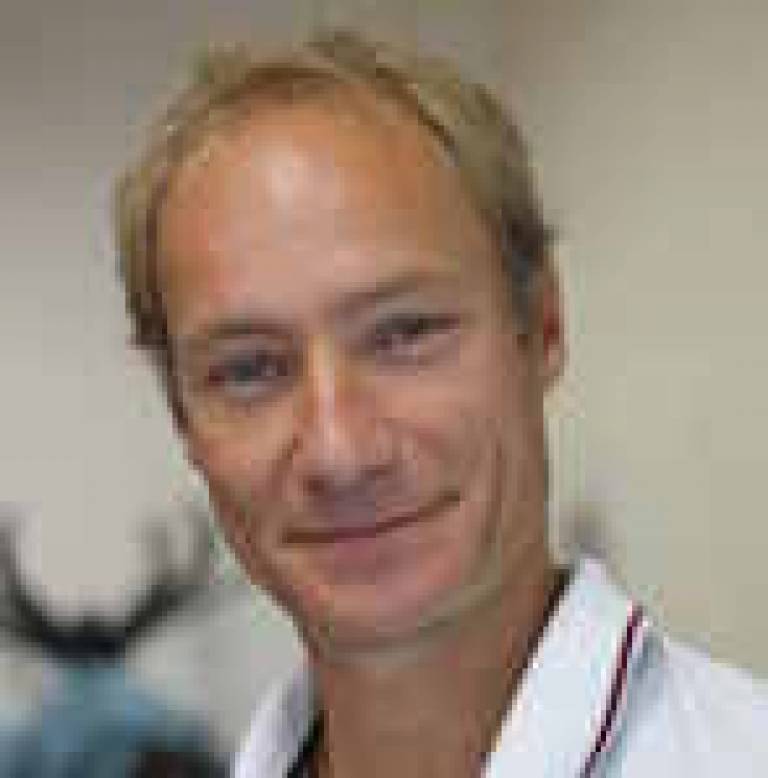IPLS Invited Speaker - Dr Pierre Sens (Paris, France)
27 May 2015, 11:00 am–12:00 pm

Event Information
Open to
- All
Location
-
UCL MRC/Laboratory for Molecular Biology Seminar Room
Title: Physical models of crawling cell motility
Abstract: Cell motility is generally powered by actin polymerization and acto-myosin contraction. When moving over a flat and rigid substrate, cells usually develop thin and broad protrusions at their front, called lamellipodia, where actin polymerisation generates a protrusive force pushing the front edge of the cell forward. The lamellipodium often displays interesting dynamics, including normal and lateral waves, possibly relevant to cell polarisation and the initiation of motion. Crawling cells move by generating traction forces on their surrounding, which can be measured by traction force microscopy. These forces often exhibit interesting spatio-temporal patterns, including periodic oscillations that may be related to the lamellipodial waves discussed above. This talk will be divided in two relatively unconnected parts.
- I will first described a model of lamellipodium dynamics where the stochastic adhesion of actin filaments to the substrate by mechano-sensitive linkers produces a stick-slip behaviour with alternative phases of forward and backward edge motion. This stick-slip behaviour confers bistability to lamellipodium fragments and possibly to entire cells, which may either be symmetric and static or polarised and motile. This model explains the existence of radial and lateral lamellipodium waves which were observed experimentally, and highlights the role of the plasma membrane tension in regulating lamellipodium dynamics and cell polarisation.
- I will then discuss a conceptual model of cell motility where the traction forces exerted by the cell are modelled as oscillating force multipoles. I will show how mechanical interactions mediated by the cytosol or the substrate may lead to synchronisation between the different parts of the cell, giving rise to polarisation and motion. I will also discussed the effect of noise on the persistence of cell motion, and the insight that such a model gives to the process of chemotaxis.
Please contact Professor Ewa Paluch (e.paluch@ucl.ac.uk) or An Tyrrell (a.tyrrell@ucl.ac.uk) if you would like to meet with Pierre during his visit.
Students and postdocs are also invited to have lunch with Pierre after the seminar, please email An Tyrrell to book your place.
 Close
Close

